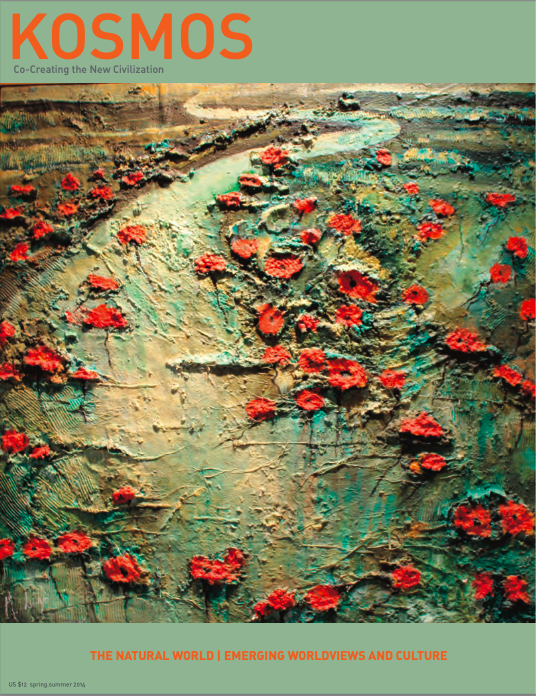By Riane Eisler for Kosmos Journal Spring/Summer 2014
Can we build a world where our great potentials for consciousness, caring and creativity are realized? What would this more equitable, less violent world look like? How can we build it?
These questions animated my research over the past four decades. They arose very early in my life, when my parents and I narrowly escaped from Nazi Europe. Had we not been able to flee my native Vienna and later find refuge in Cuba, we would almost certainly have been killed in the Holocaust, as happened to most of my extended family.
As I grew up in the industrial slums of Havana, I didn’t realize that studying social systems would become my life’s work. By the time I did, it was clear that our present course is not sustainable. In our time of nuclear and biological weapons, violence to settle international disputes can be disastrous for us all—as can our once hallowed ‘conquest of nature’ when advanced technologies are already causing environmental damage of unprecedented magnitude.
I saw that a grim future awaits my children—and all of us—unless there is transformative cultural change. But the critical issue addressed by my multi-disciplinary, cross-cultural, historical study of human societiesisthis question: Transformation from what to what?
Not so long ago, many people thought that shifting from capitalism to communism would bring a more just, less violent society. But the communist revolutions in Russia and China brought further violence and injustice.
Today, many people believe that capitalism and democratic elections are the solution. But capitalism has not brought peace or equity: Hitler was democratically elected, and elections following the Arab Spring led to repressive Islamist regimes.
Others argue that returning to pre-scientific Western times or replacing Western secularism, science and technology with Eastern religions will cure our world’s ills. They ignore that the religious Middle Ages were brutally violent and repressive, that Eastern religions have helped perpetuate inequality and oppression, and that today’s fundamentalist religious cultures, both Eastern and Western, are behind some of our planet’s most serious problems.
All these approaches are based on old thinking—and, as Einstein observed, the same thinking that created our problems cannot solve them. As long as we look at societies from the perspective of conventional categories such as capitalist vs. socialist, Eastern vs. Western, religious vs. secular, or technologically developed vs. undeveloped, we cannot effect real cultural transformation. Indeed, history amply shows that societies in every one of these categories can be, and have been, repressive, unjust and violent.
This is why my re-examination of social systems transcends old social categories. It uses a new method of analysis (the study of relational dynamics) that draws from a larger database than conventional studies. It looks at a much larger, holistic picture that includes the whole of humanity, both its female and male halves; the whole of our lives, not only the ‘public’ sphere of politics and economics but where we all live, in our families and other intimate relations; and the whole of our history, including the thousands of years we call prehistory.
Looking at this more complete picture makes it possible to see interactive relationships or configurations that are not visible through the lenses of old social categories. There were no names for these social configurations, so I called one the domination system and the other the partnership system.


Leave a Reply